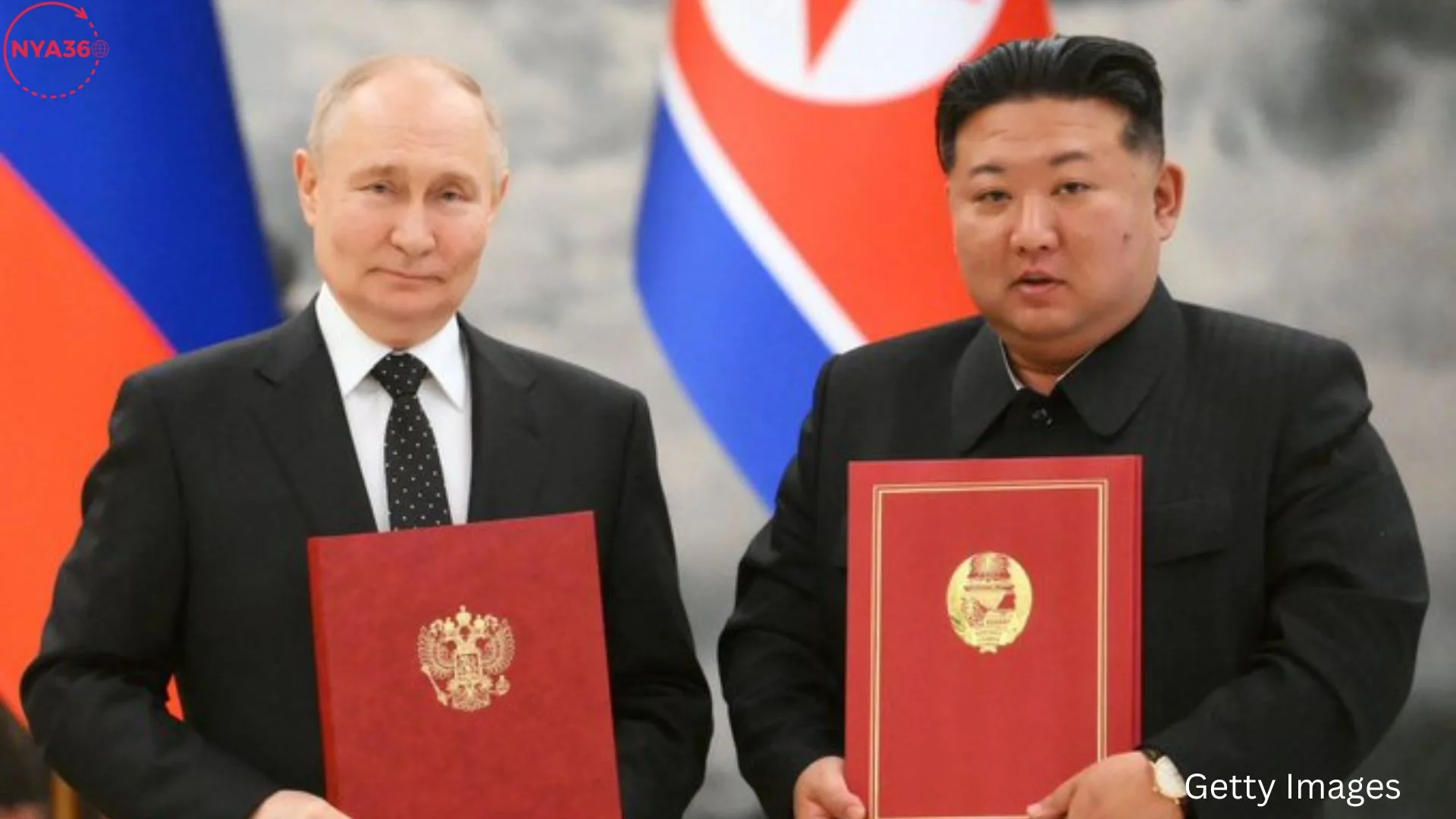North Korea has declared its plan to send military personnel to Ukraine to join Russian forces. This decision follows signing of a security agreement between Pyongyang and Moscow, similar to NATO’s Article 5. This agreement obligates each country to assist the other in the case of a confrontation. This action represents a substantial increase in the geopolitical situation and has extensive consequences for global security dynamics.
The recently inked security treaty between North Korea and Russia formalizes a pre-existing understanding of mutual defense that had been in place for several years. This agreement specifies that if one country is engaged in a military confrontation, the other country will offer assistance, reflecting the principle of collective defense outlined in Article 5 of NATO. This deal strengthens an already strong alliance between North Korea and Russia, both of which have the same purpose in their resistance to Western influence and policies. The agreement signifies a deliberate convergence of interests, specifically in light of the growing international isolation and economic penalties faced by both countries.
North Korea’s declaration to deploy military personnel to Ukraine highlights its dedication to the recent security agreement and its readiness to assist Russia’s military initiatives. This action also underscores North Korea’s aspiration to enhance its global position and reaffirm its strategic partnerships in the context of continuous tensions with the United States and its allies. The dispatch of North Korean military forces to Ukraine represents a pivotal juncture in the war, indicating the initiation of a fresh stage of global engagement. Russia views this backing as not just a military reinforcement, but also a symbolic act of unity that strengthens its position in the ongoing conflict.
The direct involvement of North Korea in the Ukraine war carries significant strategic significance. Military Consequence: The inclusion of North Korean forces might furnish Russia with supplementary personnel and assets, thereby modifying the situation on the battlefield in Ukraine. Although the precise quantity of troops and the specifics of their deployment are uncertain, their participation might enhance the Russian military presence and confer a psychological edge.
Geopolitical Consequences: This action is expected to intensify the already strained relations between North Korea and Western countries, namely the United States and its NATO partners. Furthermore, North Korea’s participation in a European conflict is unprecedented and has the potential to elicit a more extensive international reaction, thus complicating the geopolitical situation. North Korea’s conduct may trigger further sanctions and punitive measures from the international community. Both North Korea and Russia are currently under substantial sanctions, and this newly formed partnership might potentially result in additional economic isolation and adversity for both countries.
The security pact and North Korea’s involvement in Ukraine have the potential to disrupt the overall stability of the region, especially if it results in heightened military collaboration between the two nations in other domains. This could also empower other states with comparable accords to adopt more assertive positions in their regional disputes. The global community has responded with concern to North Korea’s declaration. The move has been slammed by Western governments, specifically the United States and its NATO allies, who have urged for heightened diplomatic and economic pressure on both North Korea and Russia.
The United Nations has voiced apprehension, with Secretary-General António Guterres encouraging self-control and underscoring the imperative of a nonviolent settlement to the Ukrainian crisis. The mobilization of North Korean military forces is perceived as a substantial escalation that has the potential to hinder endeavors to reach a diplomatic resolution. The relationship between North Korea and Russia is based on a common history of resistance against Western influence and a shared interest in strategic collaboration. Throughout the Cold War, the Soviet Union played a crucial role as a primary ally of North Korea, offering substantial economic and military assistance. Recently, Russia has persistently backed North Korea, especially in response to escalating global sanctions and diplomatic seclusion.

The new security treaty solidifies this enduring alliance and highlights the mutual dedication of both nations to bolster one another in response to external dangers. This phenomenon signifies a more extensive pattern of deliberate reorganizations and changing partnerships in reaction to worldwide geopolitical pressures. North Korea’s deployment of military personnel to Ukraine in support of Russia signifies a substantial intensification of the war and underscores the increasing intricacies of global diplomacy. The recently established security agreement between Pyongyang and Moscow highlights a strengthening partnership that may have significant consequences for worldwide security and stability.
Given this development, the international community must prioritize diplomatic involvement and conflict resolution. The presence of North Korean troops in Ukraine has significant implications not only for the ongoing conflict but also for the overall international order and the global endeavors to uphold peace and stability. The evolving circumstances necessitate vigilant observation and a synchronized reaction from the international community to tackle the rising perils and explore avenues for reducing tension and finding a solution.
Follow us on social media: Instagram, Threads & Twitter X @nya360_ YouTube & Facebook @nya360.






